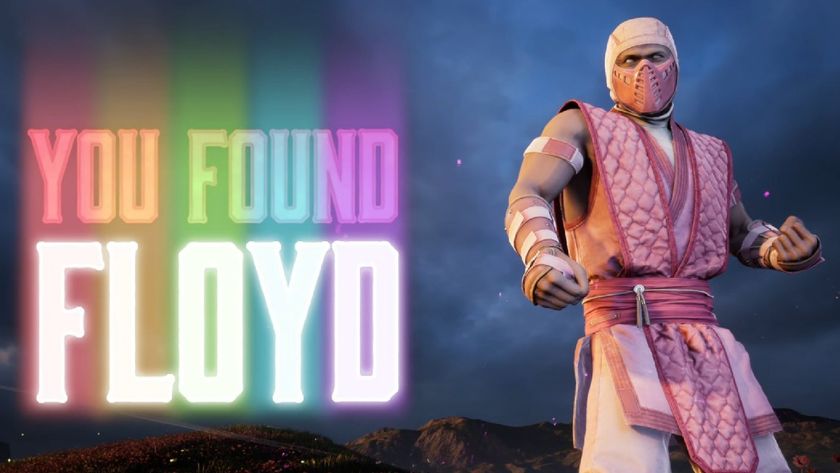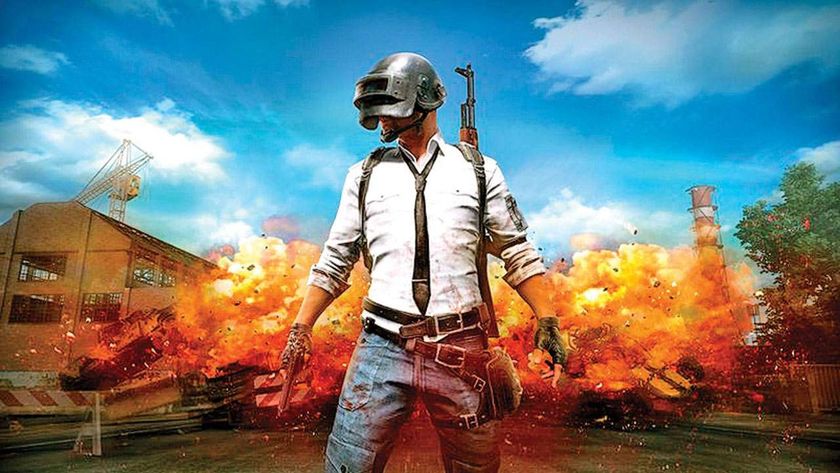Sonya Blade finally feels like a real character in Mortal Kombat X
Minor spoilers ahead for the plot of Mortal Kombat X.
I can't think of any other video game that lets you play as a 40-something mother. Ok, yes, there's The Sims - but no one in that virtual dollhouse comes close to the toughness of Mortal Kombat X's Sonya Blade, who can break people's skulls with a reverse headbutt, chuck grenades, throw her enemy from a handstand, or call in a drone to divebomb her opponents (and that's just her gameplay). Sonya plays a crucial role in the single-player campaign, which made me realize: Mortal Kombat X marks the first time that she actually feels like a real character.
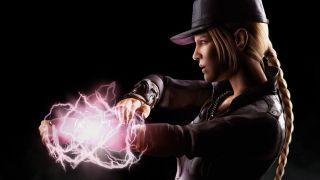
Most people - including those who only know the Mortal Kombat name for the exaggerated gore of its Fatalities - would probably scoff at the idea that bold portrayals of women could emerge from a series that lets you rip these ladies' heads off, spinal cord included. This is a franchise that deals with such hokey, comic-book-fantasy concepts as the premonitions of a thunder god and eternal conflicts between mystical realms. Yet MKX's depictions of strong women, particularly Sonya Blade, Cassie Cage, and Jacqui Briggs, are some of the most grounded, believable, and most importantly relatable portrayals I've seen in the big-budget space. I'd put this new Sonya in the same class of excellence as Amanda Ripley from Alien: Isolation.
Fighters have a bad reputation when it comes to compelling plotlines. Part of that has to do with the context: how do you tell a coherent story when all the characters are constantly beating each other to bloody pulps, be they friends or foes? Most fighting games opt to just roll brief intro and outro cutscenes to cover their plot bases, treating all the brawls in between as little more than happenstance sparring. But 2011's Mortal Kombat (which I'll henceforth refer to as MK9) bucks that trend by delivering an exceptionally engrossing narrative, retelling the events of the original MK trilogy and weaving the storyline into the one-on-one battles in a way that makes sense.
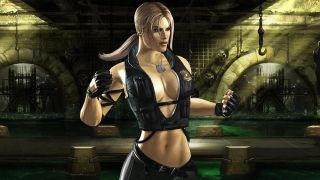
Sonya is just as important to the plot of MK9 as her primarily male counterparts, playing the role of a Special Forces agent caught up in a tournament that will determine the fate of Earthrealm itself. But the problem is that her practical disposition doesn't match up with her wildly unrealistic rendering. All the women in MK9 follow the same Barbie-like template that caters to the teenage boy's ideal of hourglass-figured beauty: huge chests, flat abs, big butts. And though characters like Sonya, Kitana, and Jade all have meaningful pursuits of their own within the overarching plot, it's almost impossible to take their copy-and-pasted, plastic-surgery-chic appearances seriously. Sonya's Kevlar bikini top is probably the biggest offender in terms of Kombat-unsuitable garb, providing zero protection but maximum cleavage.
All that malarky is gone in MKX. Sonya has advanced to the rank of General in the Special Forces, and she actually looks the part, clad in a functional uniform that's not tailored to the male gaze. For the first time since... ever, Sonya actually has wrinkles on her face, because that's what happens to people when they age, instead of looking like digitized supermodels frozen in time. Appearances aren't everything, but with games being such a visual medium, presentation definitely impacts the player's perception of any given character. Instead of being distracted by her comically revealing outfit, MKX gives you the chance to actually take in Sonya's personality, which deftly avoids the pitfalls games seem to fall into when it comes to depicting wives/mothers/women in general.
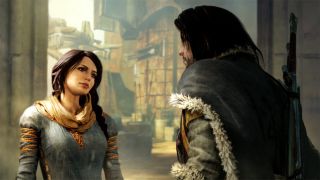
There's a regrettable trope about video game wives who exist solely as extensions of their husband (who's usually the protagonist). Typically, these docile women are given a handful of scenes before being abruptly executed, which gives the hero something to rage over and thus justifies their subsequent quest for revenge. If you're familiar with the awful 'women in refrigerators' trope that plagues comics, this is pretty much the exact same thing. Even great games like Middle-earth: Shadow of Mordor fall back on this tired framework, turning the women who further the story into one-dimensional, dehumanized motivators or completely ineffectual extras to be rescued (I'm looking at you, Lithariel).
Sign up to the 12DOVE Newsletter
Weekly digests, tales from the communities you love, and more
But Sonya is the opposite of the 'doting wife' cliche. She kept her last name after marrying Hollywood star and smartass extraordinaire Johnny Cage. She continued to pursue her career in the Special Forces, picking up where her former C.O. Jax left off. And though Johnny and Sonya have since split up in the 20 years leading up to the events of MKX, it seems that Sonya was the one who called the shots in their relationship. When Johnny protests that Sonya never made time for him when they were together, she responds "I had responsibilities. Sorry you couldn't be the center of attention."
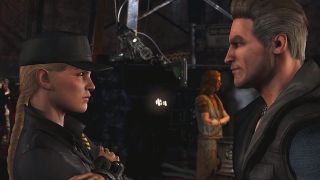
If passive, soon-to-be-murdered wives are at one end of the spectrum when it comes to women who are important to the plot, then the other, equally problematic extreme is the woman who's basically written to be just another man. For me, the example that comes to mind is Bulletstorm's Trishka, the foul-mouthed assassin who can't seem to make it through a sentence without threatening to kill someone's dick. Though she's one of the most hardened killers in a game full of rampant murderers, nothing besides her physical appearance differentiates her from the stereotypical jarhead, frat dude, or salty-mouthed sailor. Trishka's a bit like that old, out-of-touch gym teacher who equates femininity with weakness, which is why she taunts protagonist Grayson Hunt by calling him "Barbara" or just "madam".
Contrast that gruff demeanor with Sonya, who's appropriately stern and direct without ever laying it on too thick. Tricia Helfer does a phenomenal job delivering Sonya's smartly written lines, conveying the perfect amount of militaristic stoicism with just the slightest hint of vulnerability when the situation is at its most dire. She has the range to sound tough and caring at the same time, and Helfer's delivery makes it clear that Sonya isn't beholden to her emotions, or prone to profanity-laced outbursts. That doesn't mean she's robotic, or an 'ice queen'. It's just that she prefers to show her concern with a look of determination, instead of crying out in grief or spewing curse words like someone who just stubbed all their toes one by one.

It's Sonya's level of reserved, steadfast poise that makes it all the sweeter in the few instances when she shows her softer side to Johnny Cage, or their daughter Cassie (who she typically treats like any other subordinate soldier). When Sonya addresses her child by name instead of "Sergeant", it feels like a genuinely sentimental moment. And even in the face of reality-ending calamity, Sonya never has time for hysterics. The most distressed we ever see her get is when she fiercely beats the bejesus out of Kano, another MK regular who must weigh twice as much as her via muscle mass alone. And it's hard to blame Sonya for choking Kano to within an inch of his life, given that he was making threats about Cassie getting "a visit from Uncle Kano".
The attention that the recent Mortal Kombat games give to narrative is hugely beneficial, beyond the obvious upside of providing more worthwhile solo content. I consider Street Fighter’s Chun-Li to be another strong fighting game female - but when I stop and think about it, I have no idea why. For those who can't be bothered to scour through character bios and Wikis, Street Fighter doesn't really tell you anything that could help build up Chun-Li as a relatable character. I've simply projected my idea of her temperament onto a relatively blank slate, given that Chun-Li's personality only comes through in post-match win quotes.
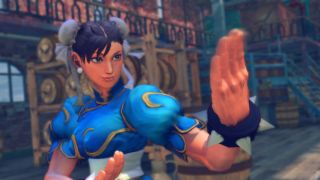
That's the case with most fighting games; players have come to expect minimal attachment to the actual personas of their chosen fighters, instead opting to appreciate playstyle over concrete personality and letting their imagination fill in most of the rest. But in MKX, I actually have key scenes and specific lines of dialogue to think back to when I ponder why I really dig this new Sonya Blade. That's a significant improvement over the shallow impression I had of Sonya during my teenage years, when I really only thought of her as 'that total babe who can kill people with a deadly kiss'.
With a series like Mortal Kombat, people put so much emphasis on how brutal the new finishing moves are, or the wince-inducing nature of the X-Ray attacks. But NetherRealm deserves major props for making its leading ladies feel grounded and empowered in MKX, with Sonya at the forefront. If a fighting game series that owes much of its popularity to shock value can elevate Sonya to be a strong, relatable character, there's no reason other AAA games - from any genre - can't try to follow MKX's admirable example.
Lucas Sullivan is the former US Managing Editor of 12DOVE. Lucas spent seven years working for GR, starting as an Associate Editor in 2012 before climbing the ranks. He left us in 2019 to pursue a career path on the other side of the fence, joining 2K Games as a Global Content Manager. Lucas doesn't get to write about games like Borderlands and Mafia anymore, but he does get to help make and market them.
Most Popular






